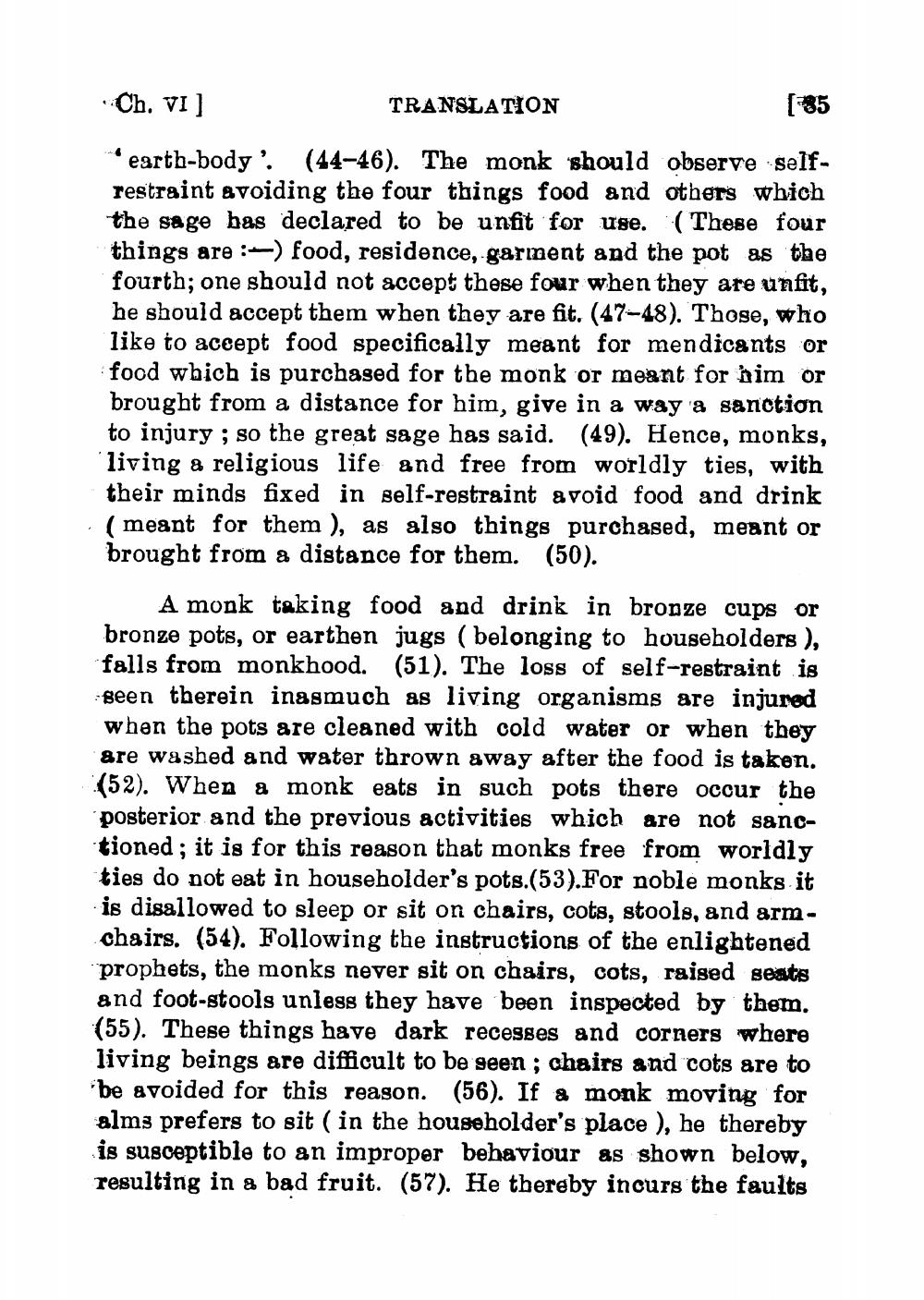________________
Ch. VI]
TRANSLATION
(35
earth-body? (44-46). The monk should observe selfrestraint avoiding the four things food and others which the sage has declared to be unfit for use. (These four things are :-) food, residence, garment and the pot as the fourth; one should not accept these four when they are unfit, he should accept them when they are fit. (47-48). Those, who like to accept food specifically meant for mendicants or food wbich is purchased for the monk or meant for him or brought from a distance for him, give in a way a sanction to injury; so the great sage has said. (49). Hence, monks, living a religious life and free from worldly ties, with their minds fixed in self-restraint avoid food and drink (meant for them ), as also things purchased, meant or brought from a distance for them. (50).
A monk taking food and drink in bronze cups or bronze pots, or earthen jugs (belonging to householders ), falls from monkhood. (51). The loss of self-restraint is Been therein inasmuch as living organisms are injured when the pots are cleaned with cold water or when they are washed and water thrown away after the food is taken. (52). When a monk eats in such pots there occur the posterior and the previous activities which are not sanctioned; it is for this reason that monks free from worldly ties do not eat in householder's pots.(53).For noble monks it is disallowed to sleep or sit on chairs, cots, stools, and armchairs. (54). Following the instructions of the enlightened prophets, the monks never sit on chairs, cots, raised seats and foot-stools unless they have been inspected by them. (55). These things have dark recesses and corners where living beings are difficult to be seen; chairs and cots are to be avoided for this reason. (56). If a monk moving for alms prefers to sit (in the householder's place ), he thereby is susceptible to an improper behaviour as shown below, resulting in a bad fruit. (57). He thereby incurs the faults




